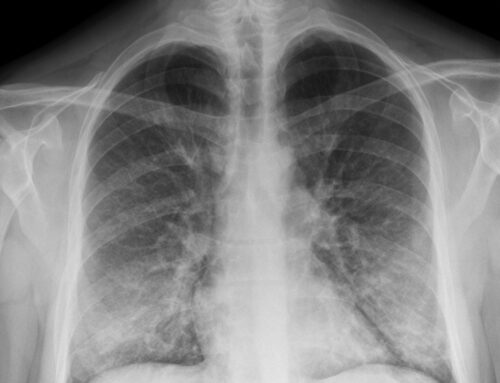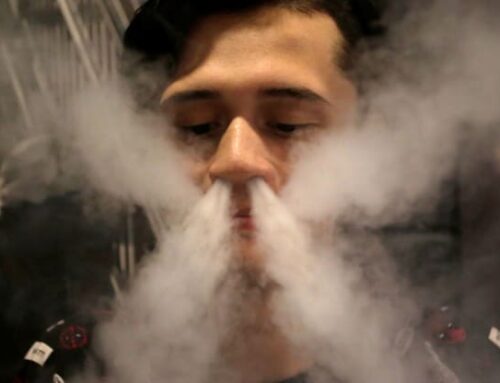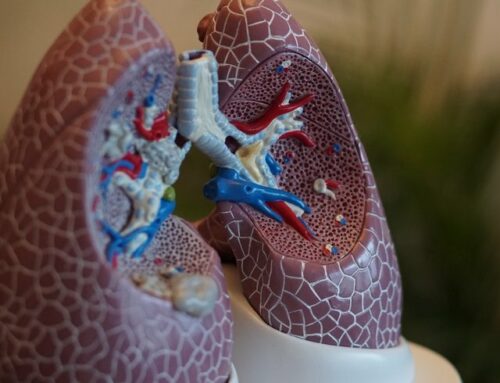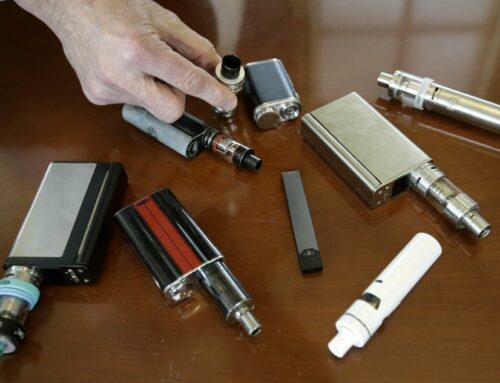What Is Vaping?
Vaping is the inhaling of a vapor created by an electronic cigarette (e-cigarette) or other vaping device.
E-cigarettes are battery-powered smoking devices. They have cartridges filled with a liquid that usually contains nicotine, flavorings, and chemicals. The liquid is heated into a vapor, which the person inhales. That’s why using e-cigarettes is called “vaping.”
What Are the Health Effects of Vaping?
Vaping puts nicotine into the body. Nicotine is highly addictive and can affect brain development.
Because vaping is new, we don’t yet know how it affects the body over time. We do know that the nicotine in e-cigarettes:
- is very addictive
- can slow brain development in kids and teens and affect memory, concentration, learning, self-control, attention, and mood
- can increase the risk of other types of addiction as adults
E-cigarettes also:
- irritate and damage the lungs
- can lead to smoking cigarettes and other forms of tobacco use
Some people use e-cigarettes to vape marijuana, THC oil, and other dangerous chemicals. Besides irritating the lungs, these drugs also affect how someone thinks, acts, and feels.
How Do E-Cigarettes Work?
There are different kinds of e-cigarettes. But many people use the Juul. This e-cigarette looks like a flash drive and can be charged in a laptop’s USB port. It makes less smoke than other e-cigarettes, so some teens use them to vape at home and in school. The Juul’s nicotine levels are similar to a cigarette’s.
Is it Safer to Not Vape Every Day?
Even if someone doesn’t vape every day, they can still get addicted. How quickly someone gets addicted varies. Some people get addicted even if they don’t vape every day.
What About E-cigarettes That Don’t Have Nicotine?
Most e-cigarettes do have nicotine. Even those that don’t do have chemicals in them. These chemicals can irritate and damage the lungs. The long-term effects of e-cigarettes that don’t have nicotine are not known.
How Can Kids and Teens Who Vape Quit?
People who vape need the right motivation to quit. Wanting to be the best, healthiest version themselves is an important reason to quit vaping. Here are some others:
Addiction: Addiction in the growing brain may set up pathways for later addiction to other substances.
Brain risks: Nicotine affects brain development in kids and teens. This can make it harder to learn and concentrate. Some of the brain changes are permanent and can affect mood and impulse control later in life.
Use of other tobacco products: Studies show that vaping makes it more likely that someone will try other tobacco products, like regular cigarettes, cigars, hookahs, and smokeless tobacco.
Toxins (poisons): The vapor made from e-cigarettes is not made of water. The vapor contains harmful chemicals and very fine particles that are inhaled into the lungs and exhaled into the environment.
Sports: To do their best in sports. Vaping may lead to lung inflammation (irritation).
Money: Vaping is expensive! The cost of the cartridges over time starts to add up. Instead, someone could spend that money on other things that they need or enjoy.
To go against tobacco company advertising: Many e-cigarettes are made by the same companies that produce regular cigarettes. Their marketing targets young people by making fun flavors for e-cigarettes and showing young, healthy people vaping. They are trying to make kids and teens of today into their new, lifetime customers.
Unknown health effects: Many of the long-term health consequences or vaping are not known.
How Can Somone Quit?
For kids and teens who want to quit, it can help to:
- Decide why they want to quit and write it down or put it in their phone. They can look at the reason(s) when they feel the urge to vape.
- Pick a day to stop vaping. They can put it on the calendar and tell supportive friends and family that they’re quitting on that day.
- Get rid of all vaping supplies.
- Download tools (such as apps and texting programs) to their phone that can help with cravings and give encouragement while they’re trying to stop vaping.
- Understand withdrawal. Nicotine addiction leads to very strong cravings for nicotine. It can also lead to:
- headaches
- feeling tired, cranky, angry, or depressed
- trouble concentrating
- trouble sleeping
- hunger
- restlessness
The signs of withdrawal are strongest in the first few days after stopping. They get better over the following days and weeks.
What Else Can Parents Do?
To help kids understand the risks of vaping and take control of their health, you can:
- Share the teens version of this article with your child.
- Suggest that your child look into local programs and websites that help people quit vaping. Your health care provider can help you and your child find the right support.
- Lend your support as your teen tries to quit.
- Set a good example by taking care of your own health. If you smoke or vape, make the commitment to quit.














